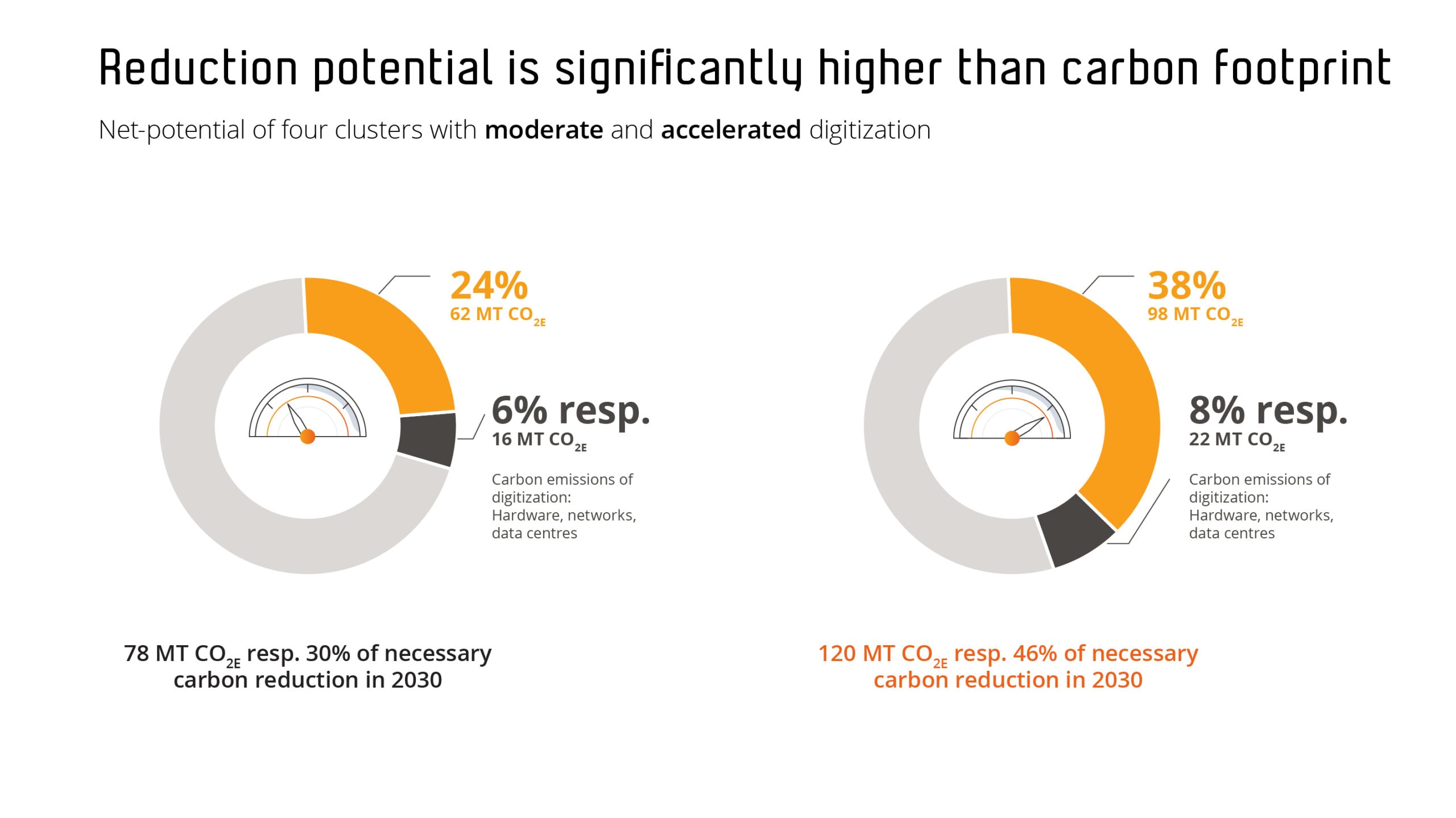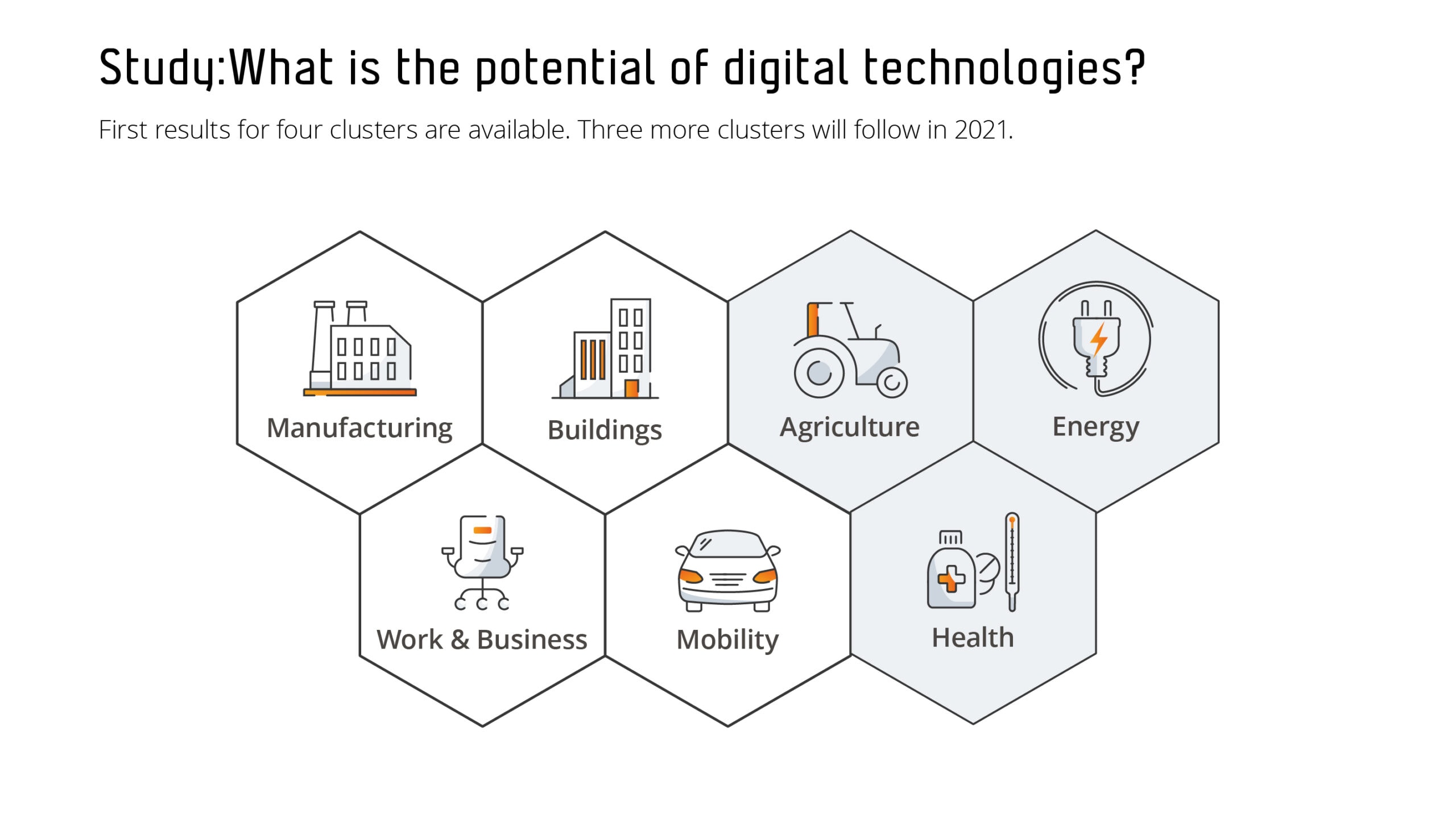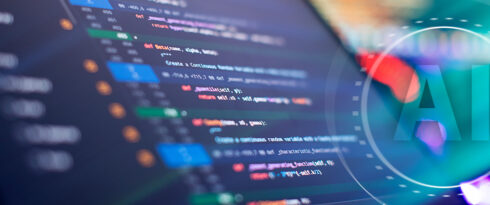
Best climate-tech solutions to fuel the green revolution in Germany
As Germany wants to achieve its climate goals by 2030 and the EU plans to become climate neutral by 2050, digital transformation and green tech solutions are necessary in significant areas, including the energy sector. Digital technologies play a huge role in the process, and specific solutions become benchmarks for other countries.
Undoubtedly digital technologies can contribute almost half to Germany meeting its climate targets by 2030. It is the most important finding of the study led by the digital association Bitkom. How can dynamic digital transformation fuel the green revolution in Germany?
The best-case scenario shows that up to 120 megatons of CO2 can be saved by 2030 thanks to digitization.
“Digital technologies hold huge potential for more climate protection. Now we want to put this potential for Germany in concrete terms,” says Bitkom President Achim Berg.
“With digitization, we have an extremely powerful tool to reduce CO2 emissions quickly and effectively.”Achim BergBitkom President
Green regulations fuel changes
The EU wants to become climate neutral by 2050, and the plan to do that is included in the regulations of the European Green Deal. An environmental tax on carbon dioxide emissions is intended to ensure change: it should help the EU countries become climate neutral. Net-zero technologies can be an essential tool for this as they help create a balance between energy generation and consumption. Moreover, it is vital for industrial companies and all businesses with high energy consumption, like data centers.
Net-zero solutions help companies reduce CO2 emissions and break away from the conditions of the electricity market to a certain extent. Thanks to net-zero technologies, businesses are getting closer to their green goals and claim to work more sustainably.
As Fraunhofer Institute for Factory Operation and Automation IFF in Magdeburg researchers claim, energy efficiency improves by over 10%, on average.
“We have been working on the integration of Net-zero technologies for years. They will continue to gain importance for companies in the future. With their help, we are currently achieving an improvement in the energy efficiency of over ten percent”Dr Marc RichterEnergy expert at the Fraunhofer IFF
What is interesting, companies are willing to develop solutions that are intended to be low-carbon. The number of patents for inventions related to low-carbon energy technologies worldwide grew by an average rate of 3.3% per year in the 2017-2019 period, as a study published by the European Patent Office (EPO) and the International Energy Agency (IEA) shows.
According to a recent study by the consulting company PWC over $ 60 billion in venture capital was invested in climate-tech companies worldwide between 2013 and 2019, with an average annual growth rate of 84% and a strong increase over the past three years. In 2019, $16 billion in venture capital was invested in 590 climate tech deals worldwide.
Climate-tech to save the environment
Wide-ranging efforts to reduce greenhouse gas emissions or the effects of global warming lead to creating the term “climate-tech”. It encompasses every technology or solution that explicitly relates to the reduction of harmful emissions. Climate-tech comes from many different sectors, but mainly from five areas with the highest greenhouse gas emissions rates:
- energy
- industrial production
- traffic and transport
- construction and buildings
- food and agriculture
Does digitization leave a carbon footprint?
It does, indeed, but the increased use of renewable energies can significantly reduce it. Technologies generate CO2 emissions (e.g., production of smart devices, network infrastructure and data centers maintenance). However, as the Bitcom study shows, the CO2 savings potential of the digital technologies examined here is around five times higher than their emissions.
If Germany speeds up digitization, it can achieve almost half of the CO2 savings required by 2030 (46%) in the four examined clusters: manufacturing, buildings, work & business and mobility.
Including other applications, the potential contribution is likely to be higher than 50%. Accelerated digitization not only contributes to environmental and climate protection. It also improves the competitiveness of the German economy. Digitization can balance economic growth with environmental and climate protection.
How does technology save CO2 in Germany?
A Bitcom study shows that almost 8 out of 10 companies save CO2 through technology. The German economy has already established the effect of digital technologies on the environment in practice. A total of 77% of companies in Germany say that their CO2 emissions have decreased overall due to digitization measures. It is the result of a representative survey among more than 750 companies with 20 or more employees, which was carried out in September and October 2020 on behalf of the digital association Bitkom.
According to the survey, 44% of companies already use intelligent lighting, and 23% use smart heating or cooling. 7 out of 10 companies have replaced business trips with web conferences. In the area of production, every fourth company (24%) uses intelligent control of systems.
63% of companies can operate more energy-efficiently thanks to digital technologies. 83% believe that investing here is beneficial in the long term.
“Digital technologies not only ensure more sustainability – but they also ensure that companies likewise remain strong and competitive in the long term” emphasizes Berg.
In the first place (87%), companies demand a rapid expansion of renewable energies from politicians. Almost every second company (46%) calls for economic incentives to invest in climate and environmental protection. “The German economy has already largely recognized the benefits of digitization”, said Bitkom President Berg. “Now it needs targeted and courageous political support to deploy climate-friendly and emission-saving technologies quickly and on a broad scale.”
Software solutions to go green
The German tech market works hard to meet green challenges and help businesses reduce CO2 emissions, save energy and become more sustainable.
Operational processes, data storage and processing, analysis and reporting, task automation in different business fields need tech solutions that have two goals:
- The first goal is helping companies do their work better, wiser, faster and more effective.
- The second one is making businesses more sustainable by helping reduce CO2 emissions.
Surprisingly, here is an example from the Polish market: TAURON Dystrybucja (the largest distribution system operator in Poland, providing electricity for 5.6 million customers) wanted to carry out a project which consisted of designing, building, testing, and implementing a system that enabled advanced analytics for large sets of data gathered based on smart metering infrastructure to support the business processes of the DSOs.
To meet those requirements, Future Processing created GridFlow – a unique solution designed for TAURON Dystrybucja based on innovative technologies and perfectly suited to the client’s needs. For the DSOs that undergo digital transformation, GridFlow is a solution that helps ensure the electrical grid’s safety through high-quality data analytics.







